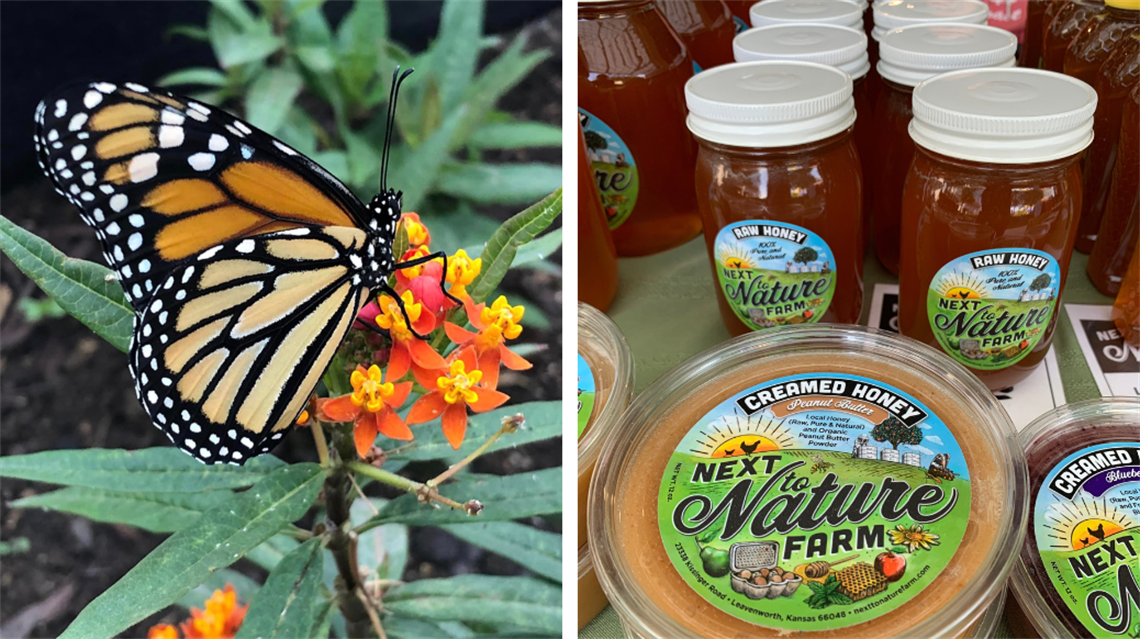The power of pollinators
Published on June 18, 2024

Pop quiz: What’s responsible for bringing us one out of every three bites of food?
Answer: Birds, bats, bees, butterflies, beetles and other small mammals that pollinate plants.
It’s National Pollinator Week (June 17–23), so the Lenexa Farmers Market is celebrating the vital role pollinators play in our ecosystems, economies and agriculture.
Bet you didn’t know that almost 80% of the 1,400 crop plants grown around the world require pollination by animals. From apples and melons to tomatoes and pumpkins, many of your favorite foods are produced with a helping hand from pollinators. These busy bodies travel from plant to plant carrying pollen, which facilitates reproduction. Flowers depend on pollinators too, and they do their darnedest to attract them.
Lenexa Farmers Market vendor Next to Nature Farm's business grew out of a hobby interest in pollinating an apple tree orchard. Little did owners Chad and Megan Gilliland know that this would turn into a full-time passion and business. Today, they harvest honey from their bee hives and create infused and creamed honeys. They have also developed a line of all-natural skincare products to use the leftover beeswax. Next to Nature Farm offers various handmade lotions and creams, soaps, shampoo bars, salves, vapor rubs and lip balms.
Ways to support pollinators
- Visit Next to Nature Farm’s farm store to check out The Butterfly House or sign up for their fascinating Bee to Bottle Tour.
- Serve a meal featuring foods and recipes created with the help of pollinators.
- Nurture a pollinator-friendly yard with native flowering plants that supply pollinators with nectar, pollen and homes.
- Reduce or eliminate your pesticide use in the garden. Many of them are toxic to honey bees and other beneficial insects. Avoid applying pesticides to plants while they are flowering.
Vendors with flowers and starter plants